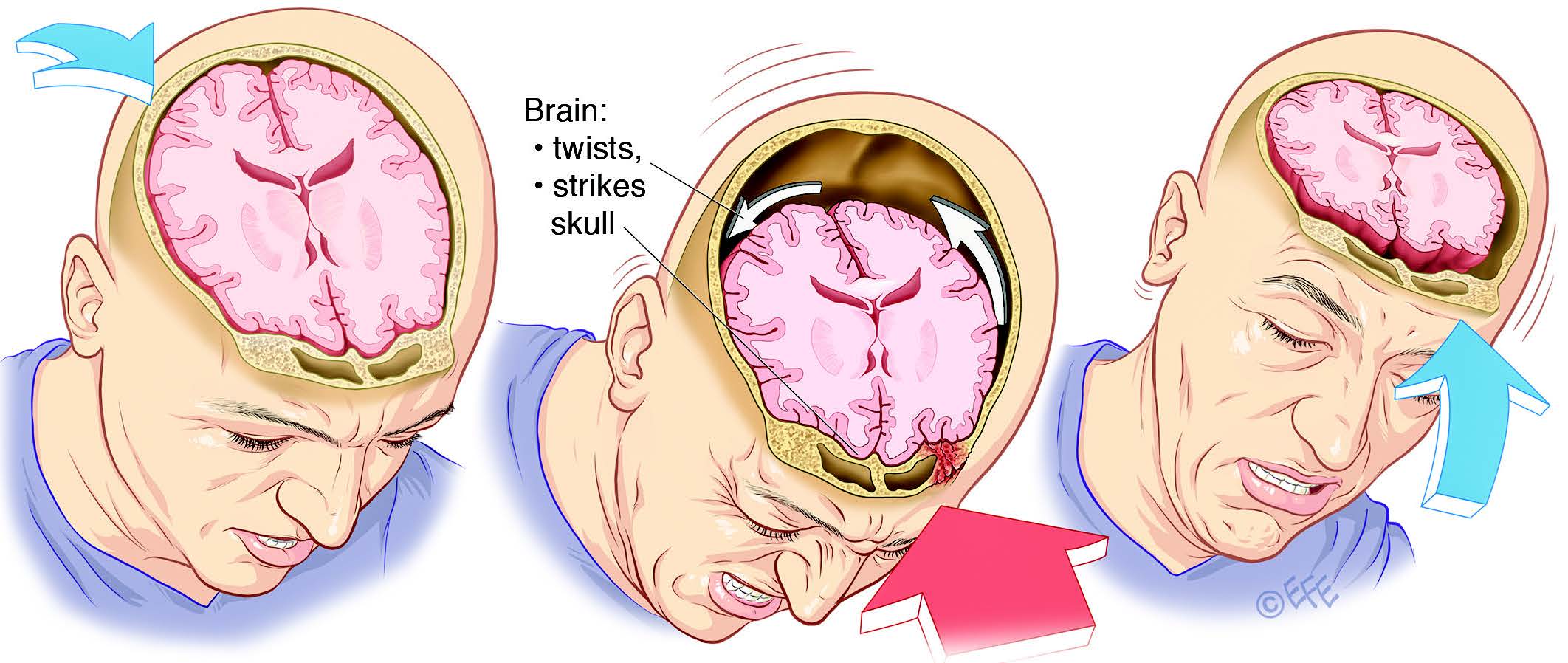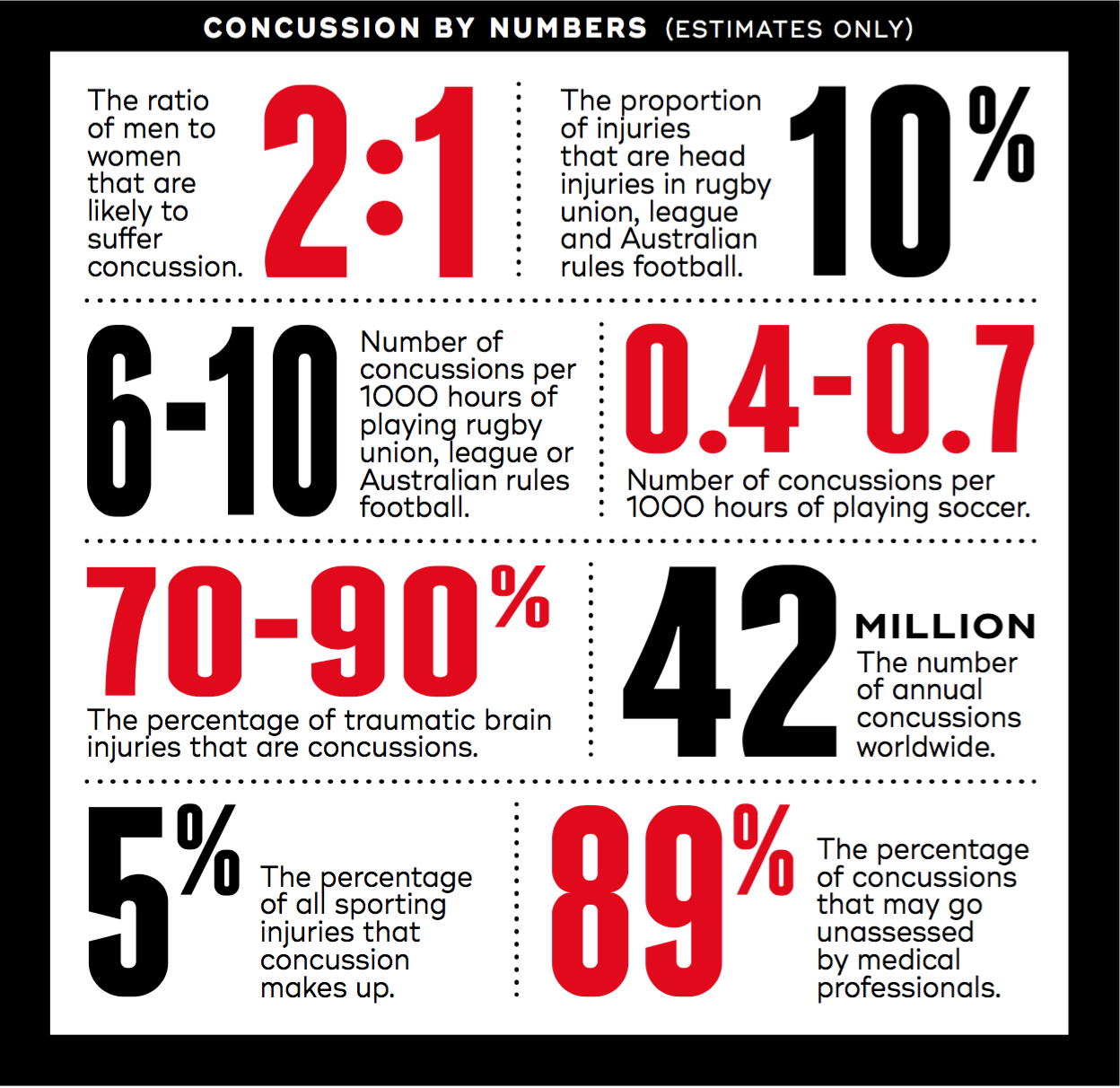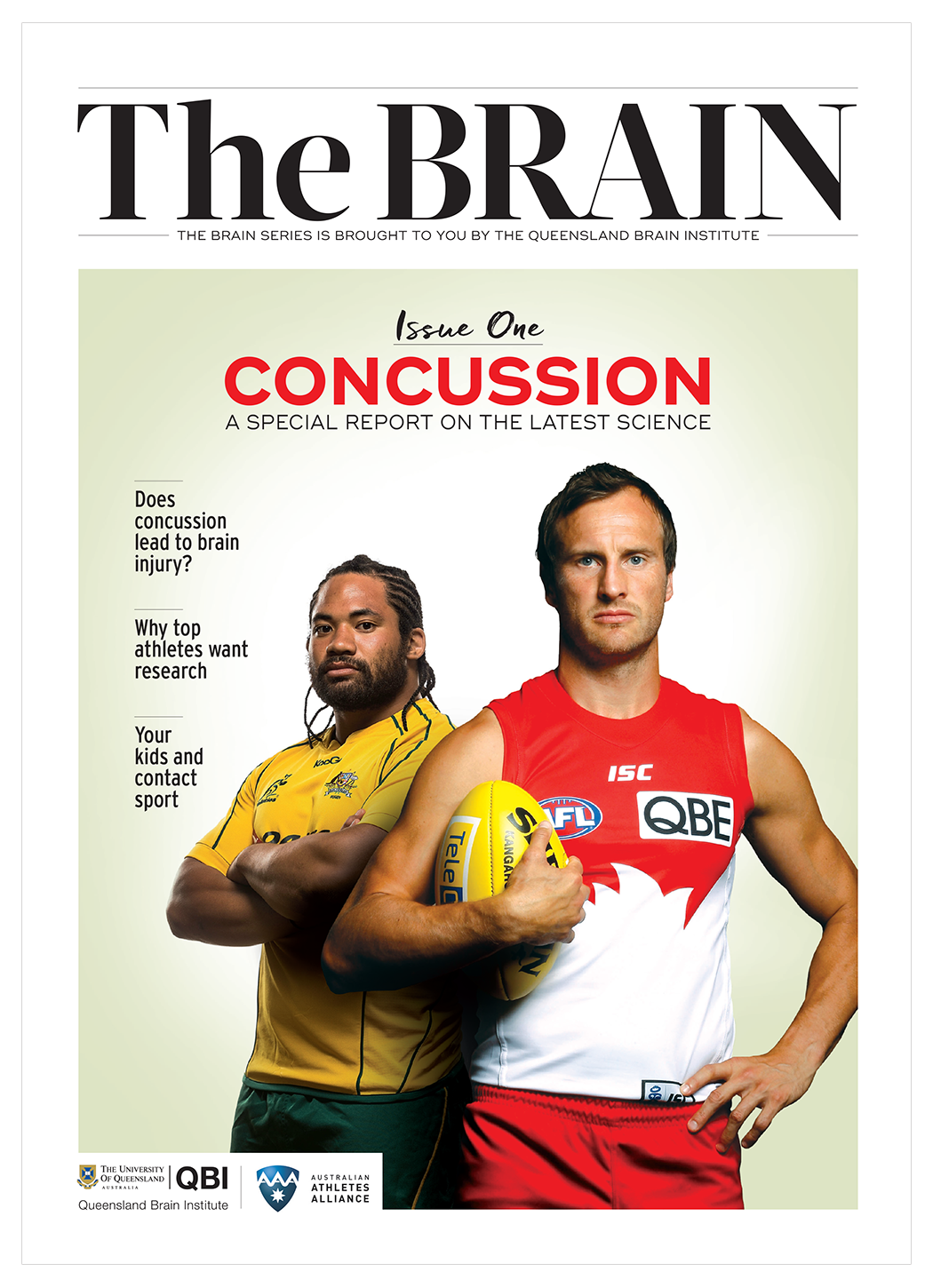What is concussion?

Image: Levent Efe
What is concussion?
The brain floats inside the skull, suspended within a protective cushion of cerebrospinal fluid. A direct blow to the head, face or neck, or from an impact to somewhere else on the body, can create a force that shakes the brain. When that force is strong enough, or comes from a particular direction, the brain can move so that it strikes the skull or twists upon itself. Just as for any body part that is struck, bruising and cell damage can occur. When those cells are neurons, however, concussion is the outcome. Because the brain is so central to our lives, controlling mood, perception and movement, the effects of concussion can be far reaching.
How is concussion diagnosed?
Concussion is the mildest form of traumatic brain injury (TBI). There is no universally accepted definition of concussion, and that's what partly makes it difficult to diagnose. A doctor would look for cognitive and neurological clues (e.g. level consciousness; fixed and dilated pupils) and may refer a patient for a CT scan to check for brain bleeds. What's clear is that concussion results in:
Rapid impairment in brain function that is temporary and gets better by itself
A variety of symptoms, but not necessarily loss of consciousness
Disturbance to the brain’s function rather than physical structure, which means that standard neuroimaging tests such as MRIs and CT may not detect any changes
Symptoms that gradually improve over time, but which may be prolonged in a small percentage of people.
Who is most at risk from concussion?
The connection between contact sport and concussion has been widely publicised. In the general population, however, concussion is in fact extremely common. Typically caused by a fall or car accident, it can also be sustained by a wide variety of other activities.
When concussion occurs in sport, players in most cases remain conscious, and the condition often goes undiagnosed. And while protective headgear prevents skull damage during high-impact knocks, it doesn’t prevent the brain from moving inside the skull.
People in certain sports have a higher risk of being concussed than the general population – rugby players and boxers, for example. People in the military who are exposed to explosions and victims of domestic abuse are also at particularly high risk. These groups are also more likely to suffer repeated concussions.
Concussion statistics

Discover the Queensland Brain Injury Collaborative (QBIC, “Cubic”), a research-led initiative that aims to improve care across the trajectory of acquired brain injury.


